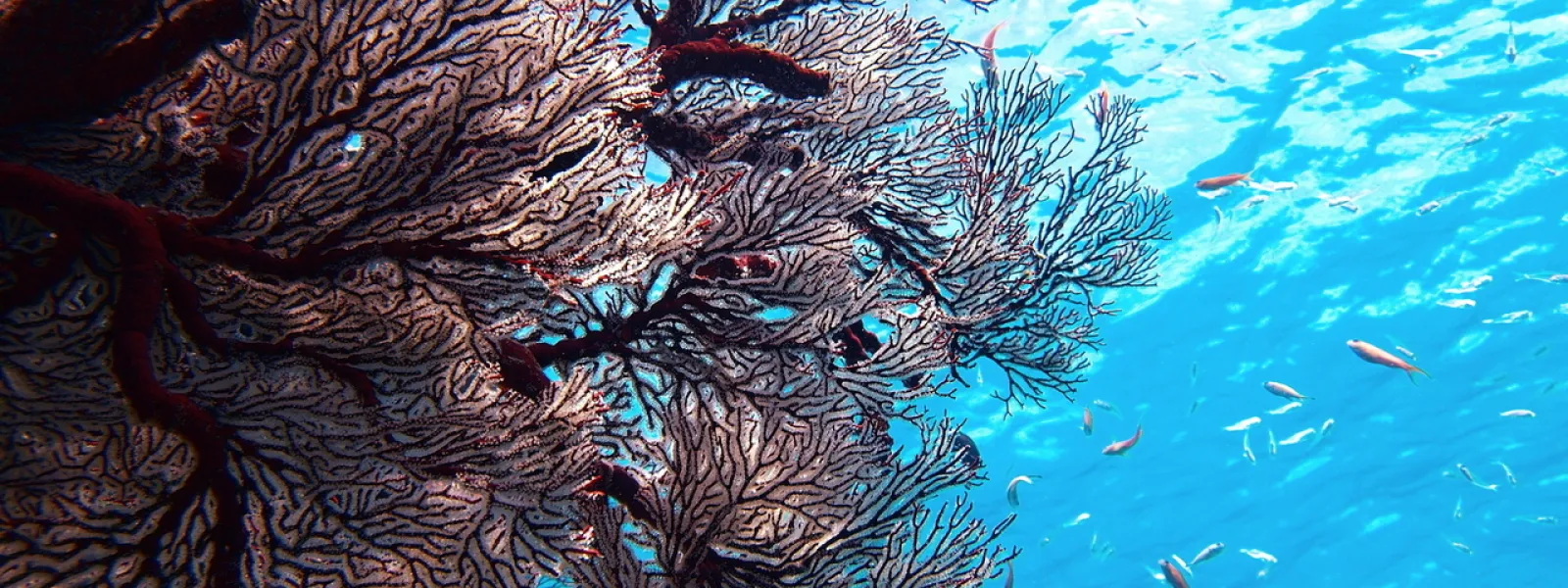
Press Center
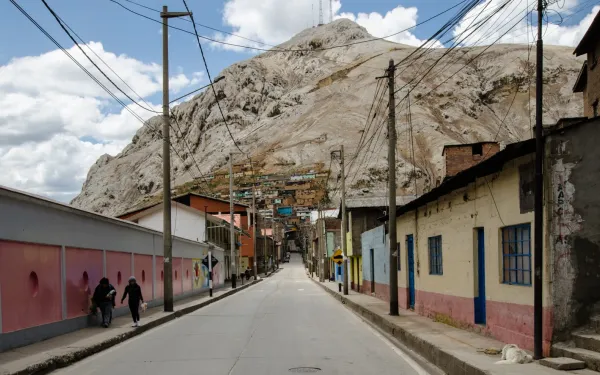
Victims in La Oroya call on the President of Peru to comply with the Inter-American Court ruling after nearly two years of delays
The group of victims recognized by the international court emphasizes the urgency of implementing the ruling on issues related to ending pollution in the city of La Oroya, providing comprehensive and specialized medical care, and paying compensation. La Oroya, Peru. Victims of decades of pollution caused by the operations of the La Oroya Metallurgical Complex sent a letter to the President of the Republic on December 19, 2025, urgently requesting compliance with the Inter-American Court of Human Rights' ruling ordering the Peruvian State to adopt comprehensive measures of justice and reparation. In the letter, part of the group of 80 victims recognized by the international court in the La Oroya v. Peru case, the group emphasizes compliance with the ruling on issues related to pollution prevention in the city, comprehensive and differentiated medical care, and the payment of compensation."Mr. President, do we have to wait another 20 years to obtain some kind of reparation? Since we began this long struggle, seven people from this group of victims have died without obtaining justice. Two of them, including a minor, died as a result of health damage caused by pollution in La Oroya, as the Inter-American Court of Human Rights confirmed in its ruling," the victims point out.Their request comes after almost two years of delays in the effective implementation of the ruling, notified on March 22, 2024, and after the Inter-American Court of Human Rights notified its interpretative judgment in November last year, in which it referred only to certain specific aspects of the original judgment that required further clarification to facilitate its execution. These points relate to health care measures, the relocation of affected persons, follow-up deadlines, compensation, and the acknowledgment of responsibility and a public apology.However, both the victims and the organizations supporting their struggle emphasize that, as established by the Inter-American Court, all orders in the original judgment are in force and fully enforceable from the moment they were issued in March 2024, with no legal impediment to immediate compliance.An essential step in achieving this is the urgent publication of the resolution determining jurisdiction by the Attorney General's Office."The victims have resorted to all legal and institutional mechanisms to access justice and see their rights restored. Today, preventing the population of La Oroya from continuing to be exposed to environmental pollution, guaranteeing comprehensive health care for those who have been affected by toxic metals, and ensuring the payment of compensation ordered by the Court are necessary and fully implementable steps for the Peruvian State to comply not only with its international obligations, but also with its fundamental duty to protect the life, health, and dignity of the people who inhabit its territory," said Rosa Peña, senior attorney at the Interamerican Association for Environmental Defense (AIDA). Christian Huaylinos, from the legal department of the Pro Human Rights Association (APRODEH), highlighted the importance of implementing the ruling throughout the country: "Several of the provisions ordered by the Court are relevant at the national level, meaning that they benefit Peruvian citizens in general in relation to pollution from mining and metallurgical activities. These include harmonizing national-level air quality regulations, guaranteeing respect for human rights and due diligence, and designing and implementing an air and water quality information system in areas of Peru with greater mining and metallurgical activity. In this regard, achieving timely and efficient compliance by the State represents the significance of the case for the benefit of all Peruvians."The victims emphasize that, given the clarifications made by the Inter-American Court in its interpretative judgment, there is no justification for the institutional delays that for more than two decades have prevented access to justice and reparation for the families affected by the pollution generated by the La Oroya Metallurgical Complex.This case has become one of the most important precedents in Latin America for protecting the rights to a healthy environment, clean air, and health, especially for communities exposed to highly polluting business operations. After more than 20 years of struggle, the victims hope that the Peruvian State will finally guarantee the justice and reparation ordered by the Inter-American Human Rights System. The victims, the population of La Oroya, and the organizations involved in the case reiterate their willingness to collaborate with the responsible institutions to ensure the effective implementation of all measures and to move toward comprehensive reparation and non-repetition.Press contactVíctor Quintanilla (Mexico), AIDA, [email protected], +521 5570522107
Read more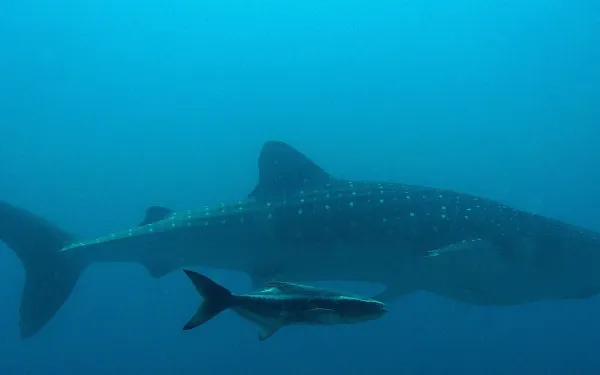
Historic High Seas Treaty enters into force, launching a new era of global ocean governance
New York. Today the High Seas Treaty, formally the Agreement on the Conservation and Sustainable Use of Marine Biological Diversity of Areas Beyond National Jurisdiction (BBNJ), has officially entered into force, marking a historic milestone for global ocean protection and multilateral cooperation.Covering nearly half the planet, the High Seas lie beyond national borders and form part of the global commons. The United Nations Treaty establishes, for the first time, a legal framework to protect biodiversity in these international waters and to ensure the benefits of their resources are shared fairly among nations. "The entry into force of the BBNJ Agreement today stands as a monument to multilateralism and to the years of dedication, dialogue and cooperative action by countless committed people around the world. Global challenges, such as the climate and biodiversity crises, affect all of us. As such, global cooperation is not a choice, it is a necessity. This Treaty embodies hope, resolve, and a shared commitment to a brighter future for the ocean and our planet," said Singapore’s Ambassador for International Law Rena Lee, who served as President of the Treaty negotiations and was pivotal in guiding states to its successful adoption in 2023.With entry into force, the Treaty now provides the tools to create marine protected areas (MPAs) on the High Seas, set clear obligations on how to ensure ocean resources are used sustainably, capacity building and access to technology and tools is prioritised, and mechanisms are established to ensure fair benefit-sharing. This will play a crucial role in achieving global biodiversity and climate goals, including the target to protect 30% of the ocean by 2030.Following two decades of discussions and negotiations, the Treaty text was finalised in March 2023. Sixty country ratifications were required for it to enter into force- a milestone that was reached on 19 September 2025. Today, 120 days later, the Treaty officially becomes international law, and its first Conference of Parties (CoP), the Treaty’s decision-making body, is set to meet within a year."The High Seas are full of life- from tiny plankton all the way up to the great whales that rely on them. We’re only just beginning to understand how important this vast, interconnected world is for the health of our entire planet. Whether it’s underwater mountains, deep-sea plains and trenches, the icy polar waters, or the open-ocean highways that migratory species travel, the High Seas are as vital as they are immense. With the High Seas Treaty now coming into force, we finally have the tools to safeguard this extraordinary part of our planet. Protecting it really does mean protecting our future," said Rebecca Hubbard, Director of the High Seas Alliance.Several legal obligations apply from today. While some of them are dependent on the set up of the Treaty’s institutions and mechanisms, there are some actionable examples from day one, including any planned activity under a Party’s control that could affect the High Seas or seabed must follow the Treaty’s environmental impact assessment processes, and governments need to publicly notify such activities. Parties must also promote the Treaty’s objectives when participating in other bodies such as those that govern shipping, fisheries and seabed mining.Ultimately the Treaty’s true power will depend on how it is collectively implemented and upheld in the years ahead. A broader membership will make it more impactful. With 82 (1) parties already on board, momentum is building and more countries are encouraged to join ahead of CoP1. Meanwhile, the Treaty’s institutional architecture- its bodies and decision-making processes- is currently being shaped through the UN Preparatory Commission, which must deliver strong proposals for adoption at CoP1 so the Treaty can start functioning as soon as possible. Countries are also encouraged to begin identifying important High Seas sites that require protection, so proposals can be brought forward at future CoPs. "At this halfway point of this critical decade, one of the world’s most ambitious ocean initiatives is entering a new era of systemic change in ocean governance. This reflects a renewed commitment to our ocean, its wildlife, the millions of people that rely on its health, and the global goals set for 2030. The High Seas Treaty shows us that meaningful progress is achieved through vision, perseverance and leadership. As we begin a new year, The Earthshot Prize is committed to backing this landmark Treaty and ensuring it moves beyond words to become a practical and enforceable safeguard for our remarkable blue planet," said Jason Knauf, CEO of The Earthshot Prize. (1) As of 14 January 2026, there are 82 ratifications of the BBNJ Agreement. More states may ratify in the coming days. Please check the most up-to-date number on the UN website.AIDA's quote"AIDA welcomes the entry into force of the High Seas Treaty, a landmark achievement for global ocean governance and protection. The Agreement enables progress toward the effective implementation of the principle of the common heritage of humankind and strengthens capacity building and technology transfer, key elements for ensuring equitable participation across all regions, particularly in Latin America. AIDA will continue to support the Treaty’s implementation and global engagement, for the benefit of the ocean and the communities that depend on it". – Gladys Martínez de Lemos, Executive Director of the Interamerican Association for Environmental Defense (AIDA).Notes to editorsSince its founding in 2011, the High Seas Alliance, with its 70+ non-governmental members, has been working towards protecting the 50% of the planet that is the High Seas; the global ocean beyond national jurisdiction. This area includes some of the most biologically important, least protected, and most critically threatened ecosystems in the world.The official status of signatures and ratifications can be found on the UN website and the High Seas Alliance’s ratification tracker. Note: The number shown on the High Seas Alliance tracker reflects only the ratifications that count toward entry into force and does not include the EU’s ratification and therefore differs from the UN’s total count. The High Seas Alliance (HSA) sometimes uses the term “High Seas Treaty“ as a short-hand for the BBNJ Agreement. HSA acknowledges that the scope of the BBNJ Agreement encompasses all Areas beyond national jurisdiction, including the seafloor and water column. This choice of wording is intended to ease understanding for broad audiences and does not convey a prioritization among the components or principles of the BBNJ Agreement.In November 2025 the High Seas Treaty was announced as the winner of the prestigious Earthshot Prize in the “Revive our Oceans” category, recognizing the decades-long efforts to put in place a groundbreaking legal framework to protect marine biodiversity in international waters. Media packThe following folder contains the following resources: High Seas Treaty Q&ABriefing Note: Legal Implications of the Impending Entry into Force of the BBNJ AgreementMPA factsheetPrepCom factsheetA cost-benefit analysis of the BBNJ Agreement in the CaribbeanRecording of the Media Briefing “A historic moment: High Seas Treaty’s entry into force” held on 13 January 2026. Video: Celebrating the Entry into Force of the High Seas Treaty
Read more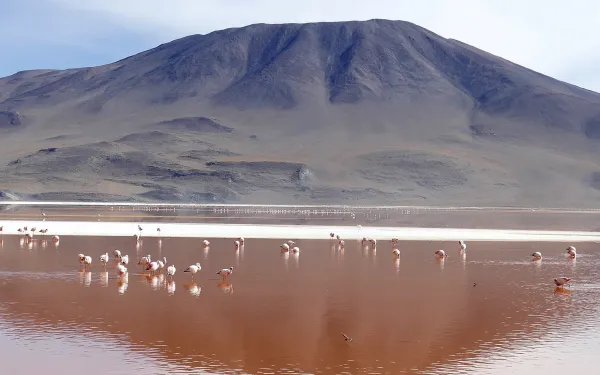
“Choose Europe”: Prioritizing minerals, not rights
The Raw Materials Week in Brussels, Belgium, has come to an end. This annual event, organized by the European Commission, aims to discuss how to ensure "sustainable and secure" access to raw materials in and for Europe, with the goal of strengthening international alliances to meet its defense, digitalization, and security goals.The European Commission emphasized that Europe is highly dependent on mineral imports from Latin America, which deepens the region’s historical pressures and the resulting need for stronger socio-environmental protections. However, from the Andean Wetlands Alliance, we maintain the week’s debates revealed an approach increasingly disconnected from human rights, community voices, and the global socio-environmental crisis.This shift in priorities is part of a broader political turn marked by geopolitical tensions around access to critical minerals and new energy sources, as well as by the rise of conservative forces and authoritarianism. A trend is emerging within the EU toward the privatization of human rights and environmental standards, along with the weakening of social and environmental safeguards through deregulatory processes. An example of this is the debate on the possible weakening of the Corporate Sustainability Due Diligence Directive.The dominant narrative this week was shaped by concepts such as “competitiveness” and “defense” as the guiding axes of European policies. Within the framework of a geopolitical rivalry between China and the United States, Europe seeks to reduce its dependence on its long-standing Western ally under the slogan “Choose Europe,” which titled this year’s edition. In this context, the European Commission continued to promote access to minerals through an approach centered on the security of its supply chains, without assessing its policies in light of planetary boundaries or human rights. This approach contradicts the commitments associated with the energy transition that originally motivated the discussions on “critical minerals.” Today, we ask to what extent the cost of “choosing Europe” will continue to be borne by local communities in Latin America and other peripheral regions affected by mining expansion.Today, we ask to what extent the cost of "choosing Europe" will continue to be borne by local communities in Latin America and in other peripheral regions affected by mining expansion.This edition had the least debate compared to the last years on the need to integrate human rights into European mineral policies. Indeed, accreditation for access to the official event was limited, and the forum's official agenda lacked a space for communities and civil society from the Global South to express their perspectives on mineral value chains like lithium, and to influence the debates that will shape the decisions affecting them. Instead, discussions focused primarily on investment opportunities for corporations and governments.From the Andean Wetlands Alliance, we highlight that the expansion of the extractive frontier contradicts the climate and biodiversity commitments endorsed by the EU and risks deepening existing asymmetries between the two regions. For this reason, we reaffirm our position on the need for a paradigm shift in EU raw materials policies, so that they become inclusive, transparent, and sustainable, ensuring the participation of communities and organizations located at the extractive frontier of transition minerals. Likewise, in the context of the ecological and democratic polycrisis, we stress the need for the EU to adopt concrete targets to effectively reduce mineral demand and to strengthen compliance with international human rights and environmental treaties.Press KitPress contactsVíctor Quintanilla, AIDA (regional), [email protected], +521 5570522107Rocío Wischñevsky, FARN (Argentina), [email protected], +541159518538Manuel Fontenla, Asamblea PUCARÁ (Argentina), [email protected], +54 9 3834790609Oscar Campanini, CEDIB (Bolivia), [email protected], +591 70344801Juan Francisco Donoso, Formando Rutas, [email protected], +4915780743628
Read more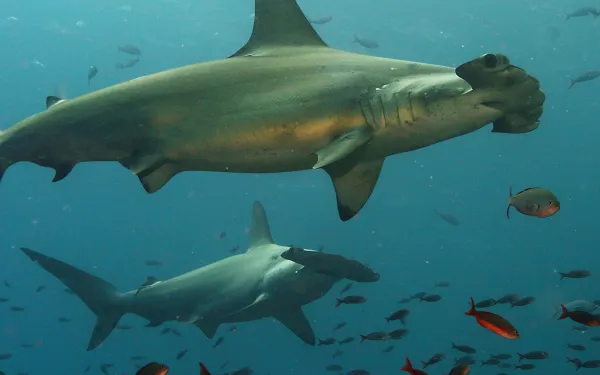
AIDA Celebrates Historic High Seas Treaty and Calls for Effective Implementation
The Interamerican Association for Environmental Defense (AIDA) celebrates the Treaty on the High Seas (BBNJ Agreement) reaching the 60 ratifications required for its entry into force, which is set for January 17, 2026. This marks a historic milestone for ocean protection and the well-being of millions of people across Latin America and around the world.“From Latin America, we celebrate the entry into force of the High Seas Treaty—a global milestone that brings us closer to achieving sustainable, equitable, and fair ocean governance. AIDA also recognizes the vital role of Latin American ocean champions who ratified the Agreement, as well as the active participation of the region throughout the negotiations and leading up to this historic moment,” said María José González-Bernat, Director of AIDA's Ocean Program.“We will continue working alongside governments, civil society organizations, academia, Indigenous Peoples, and local communities to ensure the effective implementation of this treaty, which is essential to protecting our collective future,” she added.AIDA has played an active role throughout the process, co-leading Latin American civil society contributions as part of the High Seas Alliance to help secure a strong agreement that reflects the realities, expectations, and challenges of the region.In addition, AIDA has provided technical support to regional delegations participating in the sessions of the Preparatory Committee, a United Nations body tasked with advancing the issues to be addressed at the first Conference of the Parties (COP) of the agreement, scheduled 120 days after its entry into force.The High Seas Treaty—formally known as the Agreement on the Conservation and Sustainable Use of Marine Biological Diversity of Areas Beyond National Jurisdiction (BBNJ Agreement)—offers numerous benefits, including the creation and effective management of marine protected areas on the high seas to conserve the ocean’s rich biodiversity.It also requires that any new high-seas activities undergo environmental impact assessments that account for the cumulative effects of multiple activities on a single ecosystem.Beyond the milestone of reaching 60 ratifications, it is essential that all countries—not just the initial 60—adhere to the agreement to ensure fair, equitable, and sustainable governance of high-seas biodiversity. This is critical for the treaty’s effective implementation, including achieving its conservation objectives and ensuring all countries can participate in its benefits.At AIDA, we will continue to focus on Latin America to ensure that the High Seas Treaty leads to concrete actions for the protection and sustainable use of the high seas—a shared responsibility of all governments.Find out what the members of the High Seas Alliance think.Press contactVíctor Quintanilla, [email protected]
Read more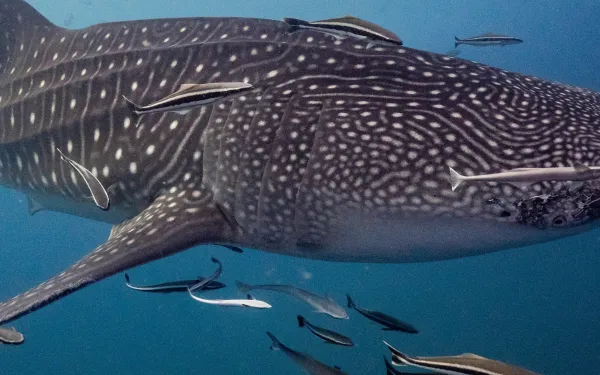
Historic milestone for global ocean protection: 60th ratification triggers entry into force of High Seas Treaty
Following the deposit of ratification instruments by four new countries this week at the United Nations–Sri Lanka, St. Vincent and the Grenadines, Sierra Leone and Morocco- the High Seas Treaty has reached the milestone of 60 state ratifications needed to trigger its entry into force. Formally known as the Agreement under the United Nations Convention on the Law of the Sea on the Conservation and Sustainable Use of Marine Biological Diversity of Areas Beyond National Jurisdiction (or BBNJ Agreement), the Treaty will become legally effective 120 days from today (17 January 2026).“This historic moment is the culmination of years of dedication and global diplomacy by governments and stakeholders” said Rebecca Hubbard, Director of the High Seas Alliance. “The High Seas Treaty is a powerful testament to multilateralism- showing what the world can achieve when we come together for the common good for our ocean, which covers more than 70% of the planet. Today marks an important step when promises start becoming action.”The Treaty is the first legally binding international agreement safeguarding marine life in the High Seas, which covers two-thirds of the world’s ocean and plays a critical role in ensuring a healthy planet. It provides new tools to halt biodiversity loss and ocean degradation through enabling the creation of marine protected areas (MPAs) in international waters and ensuring environmental impact assessments of planned human activities. It will also boost equity for developing countries through increasing knowledge and technology access, strengthening capacity, and ensuring the equitable access and sharing of the benefits of marine genetic resources.These provisions are vital to achieving climate and biodiversity global goals, including the Kunming-Montreal Global Biodiversity Framework (GBF) 30×30 target to protect 30% of the planet’s land and ocean by 2030.Adopted in June 2023, after nearly two decades of discussion and negotiations, the Treaty opened for signature on 20 September 2023. Palau became the first country to ratify on 22 January 2024, and since then States from every region have joined. In addition to the 60 ratifications, 142 countries plus the European Union have signed, signaling their intent to ratify.Under the Treaty, the first Conference of the Parties (CoP) must convene within a year of entry into force, likely toward the end of 2026. Preparatory work is already underway at the UN to build the institutions and processes in time for CoP1 that will ensure the Treaty’s ambition and long-term effectiveness. Governments and stakeholders are also laying the groundwork for developing High Seas MPA proposals to protect critical biodiversity sites once the Treaty is operational. These include the Salas y Gómez and Nazca Ridges, the Lord Howe Rise and South Tasman Sea, the Sargasso Sea and the Thermal Dome in the Eastern Pacific.“Achieving 60 ratifications is not the finish line–it’s just the starting block,” said Rebecca Hubbard. “The Treaty’s true strength lies in universal participation. While we must celebrate this incredible progress, we urge all remaining nations to join this historic Agreement and help us go from 60 to global ahead of the first CoP.”Further ratifications are expected during the upcoming UN General Assembly High-Level Week in New York (beginning 22 September 2025). Notes to editorThe official status of signatures and ratifications can be found on the UN website and the High Seas Alliance’s ratification tracker. Note: The number shown on the High Seas Alliance tracker reflects only the ratifications that count toward entry into force and does not include the EU’s ratification and therefore differs from the UN’s total count. The High Seas Alliance (HSA) sometimes uses the term "High Seas Treaty" as a short-hand for the BBNJ Agreement. HSA acknowledges that the scope of the BBNJ Agreement encompasses all Areas beyond national jurisdiction, including the seafloor and water column. This choice of wording is intended to ease understanding for broad audiences and does not convey a prioritization among the components or principles of the BBNJ Agreement.
Read more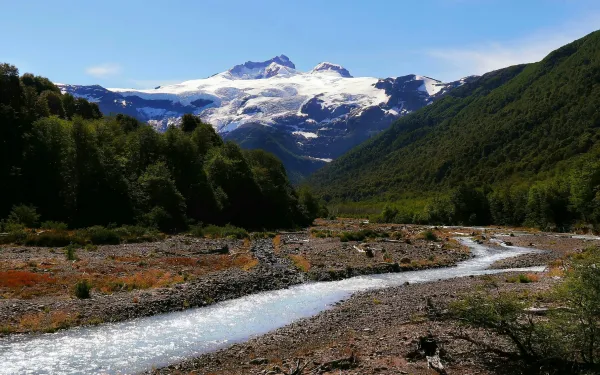
Mapuche defend against extractive industry and forced evictions from ancestral lands in Argentina
Mapuche communities urge Inter-American Commission on Human Rights to further investigate abuses at nexus of extractive industry and land dispossession.Río Negro, Neuquén, Mendoza, Argentina - Organizations of the Indigenous Mapuche People addressed the urgent situation arising from conflicts with extractive projects on Indigenous land in Argentina in a public hearing before the Inter-American Commission on Human Rights today. The human rights body of the Organization of American States heard testimony of those impacted by mining, oil, and gas projects that have been compounded by the lack of territorial recognition, ongoing evictions, and the criminalization of indigenous communities."The rapid expansion of extractive projects across ancestral Mapuche territories in Argentina is driving the eviction of our communities as projects proceed without their free, prior, and informed consent," emphasized Mirta Ñancunao y Hugo Aranea, werken (spokespeople) of the Mapuche-Tehuelche Parliament of Río Negro. This includes new mining projects across 1,800 square kilometers in Malargüe, oil and gas developments stretching 600 kilometers along the Vaca Muerta shale formation in Neuquén, and at least 53 new mining and energy projects in Río Negro, particularly in the Calcatreu open-pit gold and silver mining project, which threatens nearby water sources."The exploitation of natural resources has been accompanied by the intention to vacate traditional territories," said Lorena Bravo of the Mapuche Federation of Neuquen, Xaunko Regional Council. "The evictions have direct consequences including preventing the use of and access to land, sacred sites, impacts to health, access to water, impacting indigenous economies and traditional practices."Gabriel Jofré, werken of the Malalweche Organization, asserted that the "advance of extractive companies into the traditional territory of Mapuche communities is predicated on the lack of effective state recognition of Mapuche communities." He emphasized that the state has dismantled the processes used by Mapuche communities to assert their territorial rights, including the recognition of their legal status. Jofré also noted that the national government rolled back protections in Law 26.160, which had suspended evictions of recognized indigenous communities."The advance of land extraction is not possible without installing a racist and discriminatory discourse," which Jofre maintains endangers human rights and environmental defenders. Both national and provincial politicians have fueled racist and hateful discourses against Mapuche communities, labeling them "terrorists" and denying their Indigenous identities. This rhetoric has further stigmatized Indigenous defenders and increased the risks they face for engaging in rights advocacy.The communities urged the Commission to further investigate human rights violations occurring at the intersection of extractive industry expansion and the dispossession of Mapuche communities from their ancestral lands. In December 2024, the Commission issued a public statement calling on Argentina to respect the land rights of Indigenous Peoples.Organizations participating in the hearing included the Malalweche Organization from Mendoza, The Mapuche Confederation of Neuquén, and the Coordination of Mapuche Parlement of Río Negro, with support from the Observatory on the Human Rights of Indigenous Peoples, and the Interamerican Association for Environmental Defense. Earthjustice has partnered with the Malalweche Organization in defending territorial rights of the Mapuche people since 2022.Entre las organizaciones que participaron en la audiencia se encuentran la Organización Malalweche de Mendoza, la Confederación Mapuche de Neuquén y la Coordinadora del Parlamento Mapuche de Río Negro, con el apoyo del Observatorio de Derechos Humanos de Pueblos Indígenas, la Asamblea Permanente por los Derechos Humanos (APDH), la Asociación Interamericana para la Defensa del Ambiente (AIDA) y Earthjustice.Press contactVíctor Quintanilla (Mexico), AIDA, [email protected], +52 5570522107
Read more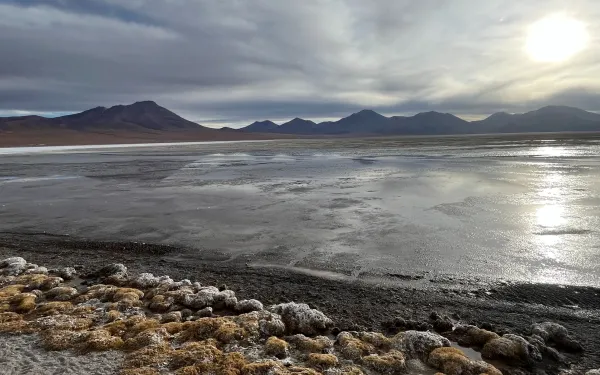
Human rights and the rights of nature in the governance of minerals for the energy transition
A reading of Advisory Opinion 32 of the Inter-American Court of Human Rights by the Andean Wetlands Alliance The Inter-American Court of Human Rights (IACHR) outlined in its Advisory Opinion No. 32 (OC-32), released on July 3, 2025, how human rights must be upheld in the face of the climate emergency. The Court also recognized the rights of nature and the responsibilities of States and companies regarding climate change. This advisory opinion followed more than 150 oral interventions and over 260 written submissions—including those from organizations that are part of the Andean Wetlands Alliance.This pronouncement sets a course for protecting valuable ecosystems and the rights of people in Latin America, a region deeply affected due to its significant reserves of minerals increasingly in demand for the global energy transition.Human rights and "critical" mineralsThe IACHR, a central institution in setting human rights standards for Latin America and the Caribbean, provided through OC-32 a set of tools for moving toward policies grounded in equity and justice. These tools align with the principles put forward by the UN Secretary-General in relation to the minerals value chain for the energy transition.Minerals such as lithium and copper are at the heart of current energy transformation policies due to their value for battery manufacturing. This value chain begins in territories such as the high Andean wetlands of Argentina, Bolivia, and Chile, with the exploration and extraction of mineral deposits. It continues with their processing and refining in specialized facilities for the production of cells, which are later integrated into batteries that power a range of devices—mainly individual electric vehicles.The Court placed special emphasis on the protection of human rights during the extraction of so-called “rare or critical” minerals for the energy transition, which make up the first links in this value chain. This directly reflects Principle 1 of the 2024 Report of the UN Secretary-General’s Panel on Critical Minerals for the Energy Transition and offers a key legal instrument for protecting human rights in Latin American countries. It also outlines essential elements for respecting the integrity of ecosystems (Principle 2) from the most biodiverse region on the planet, as well as advancing justice and equity (Principle 3), transparency and accountability (Principle 6), and strengthened multilateral cooperation (Principle 7).Rights of Nature in a Megadiverse RegionAmong its conclusions, the Court recognizes the rights of nature, referring to the need to preserve its essential ecological processes. This contributes to consolidating a development model that respects planetary boundaries and ensures the availability of vital resources for present and future generations.This recognition is especially critical in Latin America, one of the most biodiverse regions in the world. It holds 50% of the planet’s biodiversity in ecosystems such as wetlands and tropical forests—especially the Amazon. It is home to 12 of the 14 terrestrial biomes and is a key epicenter for nature’s contributions to people.These issues are particularly relevant for a region whose historical role as a provider of natural resources has helped build the global economy, yet at great cost—causing severe ecosystem damage and violating community rights. The protection of nature’s rights provides a central tool for managing the mineral wealth essential for the energy transition, especially given that the region holds more than 50% of the world’s lithium reserves and 40% of its copper reserves.Latin America is also one of the most culturally diverse regions: approximately 54.8 million Indigenous peoples live across its territories, representing 8.5% of the total population—the highest global proportion relative to total population—and occupying over 20% of the land.OC-32 particularly highlights the role of communities in preserving ecosystems and a healthy climate, free from human interference. It acknowledges the importance of local, traditional, and Indigenous knowledge for informed decision-making and cultural preservation. This approach empowers local and Indigenous communities—long-standing guardians of ecosystems who possess deep traditional knowledge—yet who are often excluded from decision-making processes and denied their rights to free, prior, and informed consultation and participation.The right to a healthy climate: Promising newsOC-32 recognizes the right to a healthy climate as part of the broader right to a healthy environment, free from human interference. States are thus required to prevent any irreversible harm to the planet’s ecological balance and exercise heightened due diligence—taking into account the degree of potential harm, the best available science, and the specific vulnerabilities of at-risk groups, without creating or exacerbating such vulnerabilities.In their mitigation strategies, States must prioritize both people and ecosystems—particularly those that play a vital role in regulating the Earth’s climate systems and natural cycles.In this regard, the Court’s acknowledgment of the Andean wetlands of Argentina, Bolivia, and Chile is especially significant. These ecosystems contribute to climate adaptation through water regulation. They also have the capacity to mitigate climate change by acting as carbon sinks: studies have recorded significant levels of carbon dioxide absorption through their vegetation and extremophile microorganisms.Ironically, these very wetlands are now under threat from the expansion of mining for the energy transition.Corporate Obligations on Human RightsOC-32 makes it clear that, in addition to States, companies also bear obligations concerning the climate emergency and its impact on human rights. The Court calls on States to regulate and oversee corporate due diligence across the entire value chain, in accordance with the UN Guiding Principles on Business and Human Rights (UNGPs). These obligations include identifying, preventing, mitigating, and accounting for business-related impacts on the environment, climate, and human rights. These are non-transferable obligations—they cannot be outsourced to third parties, such as certification bodies. The advisory opinion also calls for the avoidance of greenwashing and undue influence from third-party actors in corporate decision-making.A perspective on Advisory Opinion 32 from the Andean wetlandsSpanning more than 200 pages, OC-32 provides tools to ensure the protection of human rights throughout the mineral value chain, as well as the integrity of ecosystems, from a Latin American perspective. It also promotes implementation of the UN Secretary-General’s Panel principles on critical minerals for the energy transition.No less important, it upholds the interdependence of democracy, the rule of law, and human rights protection within the Inter-American system, and strengthens the role of access rights and the protection of human rights, environmental, and climate defenders, in accordance with the Escazú Agreement. This recognition is especially crucial for the most dangerous region in the world for defending nature.In a context of climate denialism, fueled by political leaderships that reject humanity’s role in the climate crisis, OC-32 stands as a vital roadmap to urge States to meet their climate commitments through a human rights-based approach.From the Andean Wetlands Alliance, we view this opinion with hope—as a key tool to help ensure the rights of those who have inhabited these wetlands for generations and to protect these vital ecosystems. Reactions from Members of the Andean Wetlands Alliance to Advisory Opinion No. 32 of the Inter-American CourtPía Marchegiani, Deputy Executive Director, Fundación Ambiente y Recursos Naturales (Argentina):"In a context where discussions on critical minerals are increasingly shaped by security and military interests, and unilateral or bilateral agendas from the Global North seek to control mineral supply chains, the Inter-American Court has taken a clear, strategic step in defining how the balance must be struck: placing human rights and nature at the center. Only in this way can we move forward toward justice and equity, as proposed by the UN Secretary-General’s Panel on Critical Minerals."Ricardo Frez, Director, ONG Defensa Ambiental (Chile):"This unprecedented recognition of nature as a rights-bearing subject marks a shift toward ecocentric approaches in international human rights law. It is especially significant amid the growing—and often irreversible—impacts of mining for critical minerals like lithium and copper in the Global South. The Court affirms the autonomous protection of nature, not only as a means to secure human rights, but as an end in itself. It reinforces States’ obligations to prevent irreparable climate and environmental damage. In a context where the energy transition risks replicating extractivist models, this advisory opinion provides crucial normative tools to defend territories and life."Vivian Lagrava Flores, Empodérate, Human Rights Collective (Bolivia):"Although communities may not be familiar with technical terms like climate, energy transition, and so on, they have welcomed with hope the fact that Advisory Opinion 32/25 places greater obligations on States. Laws, constitutions, and human rights standards are being ignored, while all kinds of impacts are overlooked. Wetlands—especially freshwater bofedales—are nature’s miracle that sustains our way of life and are essential for mitigating climate change. Yet they are being destroyed by extractivism. The Bolivian State must grasp the magnitude of its obligations."Ezio Costa Cordella, FIMA NGO (Chile):"The concept of a just transition appears in several parts of the advisory opinion issued by the Inter-American Court of Human Rights. There is a specific and explicit mention of this type of transition, and the Court refers to the obligation of States to uphold this principle when developing climate policies and strategies. This means they must avoid deepening situations of multidimensional poverty and instead assess how a transition will affect a given territory and the people who live there—including, of course, the workers in industries undergoing change. In this sense, it is important to understand that the ecological transition is not limited to policy measures; it also concerns how a range of social systems, including those of production and consumption, will adapt to the new climate and environmental reality. In this process—from the present state of affairs to what will emerge as a result of this new environmental condition—we must ensure that no further violations of human rights occur. On the contrary, we should create conditions that lead to better protection and fairer distribution of those rights."Oscar Campanini, CEDIB (Bolivia):"The advisory opinion of the Inter-American Court is an enormously important reinforcement of civil society’s defense of the environment, water, Indigenous peoples’ territories, and life itself—a defense that benefits not just specific groups but is, in fact, the only way to ensure our survival as a species. In the case of the high Andean plateau, this opinion supports the struggles of communities defending water and wetlands against growing pressure from critical mineral extraction projects such as lithium."Verónica Gostissa, Asamblea PUCARÁ (Argentina):"We are at a turning point for climate justice and human rights. The Inter-American Court now recognizes the autonomous right to a healthy climate. In regions like northwest Argentina—where ecosystems of high ecological value, such as high Andean wetlands, coexist with intense extractive pressures from lithium mining—this decision directly challenges the current mining and energy model. This legal milestone reinforces a truth that communities and peoples have long upheld: if it dries up rivers, it’s not an energy transition. And there can be no true transition without environmental justice."Paulina González Quiroga, Fundación Tantí (Chile):"We deeply value the statement issued by the Inter-American Court at a strategic moment for our bodies and territories, especially for those of us living in the Global South—in the highland and coastal desert regions of Chile. This is a mining and productive zone where both continental and marine waters are being affected by the entire value chain operating in the area. In our territory, marked by a history of environmental sacrifice, there is no real transition. On the contrary, the same communities and ecosystems are now facing an intensification of extractivist practices—now labeled ‘green.’ We are witnessing an unimaginable increase in the impacts on our high Andean and marine ecosystems, and on the ways of life that exist here. In this context, the Court’s opinion will be crucial in strengthening the legal defense of our territories in various processes of Indigenous consultation and environmental justice that are already underway and will undoubtedly continue within the framework of these policies." Yeny Rodríguez, senior attorney and Line Coordinator, Interamerican Association for Environmental Defense (AIDA)"The Advisory Opinion No. 32 of the Inter-American Court recognizes the high degree of vulnerability and risk in which strategic ecosystems in Latin America are found for the water cycle and climate, such as the Andean salt flats, and sends a very clear message to the governments of the region and to the companies operating in our territories: in application of enhanced due diligence, they must avoid mining activities that could generate irreversible damage to ecosystems and aggravate the situation of vulnerability of indigenous peoples or communities at risk."
Read more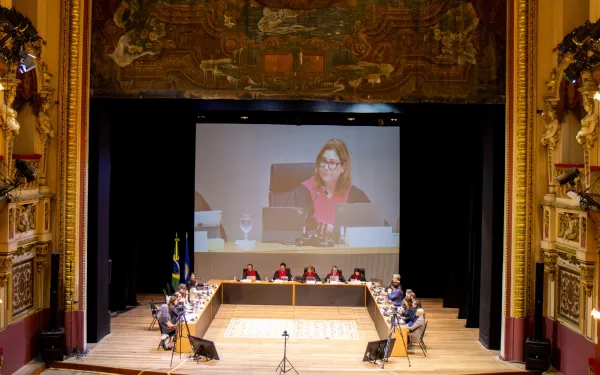
Landmark Inter-American Court Decision Requires States to Protect Human Rights in the Face of the Climate Crisis
In a groundbreaking advisory opinion issued today, the Inter-American Court of Human Rights clarifies the obligations of States to effectively protect people and communities from the harmful impacts of the climate crisis. The decision sets a powerful precedent for climate justice and offers critical guidance to national and international courts worldwide.San José, Costa Rica. In its Advisory Opinion No. 32, the Inter-American Court of Human Rights has taken a historic step toward strengthening global climate accountability. The Court sets a powerful precedent by establishing legal standards that States across the continent must meet to protect human rights in the face of the climate crisis. This landmark ruling is expected to drive a new wave of strategic climate litigation, enabling affected people and communities to access justice.“The Court’s decision marks a watershed moment for climate justice in Latin America and around the world, as it is the first time a regional human rights tribunal has clearly spelled out States’ legal obligations in response to the climate crisis,” said Gladys Martínez, Executive Director of the Interamerican Association for Environmental Defense (AIDA). “We welcome this significant step forward — one that will not only help protect communities and individuals, but also guide national and international courts, including the International Court of Justice, which is now developing its own opinion on this critical issue.”The Court recognized, for the first time, the existence of an autonomous human right to a healthy climate, derived from the right to a healthy environment. In light of Advisory Opinion No. 32, States across the region now have legal obligations to address the climate crisis as a human rights issue, in accordance with their domestic laws and applicable treaties and agreements, including:Guaranteeing a climate system free from dangerous anthropogenic interference, as a precondition for the exercise of other human rights.Respecting the principle of intergenerational equity, by ensuring that current generations leave behind conditions of environmental stability that allow future generations similar opportunities for development.Regulating, supervising, and overseeing, as well as requiring and approving environmental impact assessments, to fulfill their duty to mitigate greenhouse gas (GHG) emissions.Defining a mitigation goal; developing and maintaining an up-to-date mitigation strategy grounded in human rights; and strictly monitoring and supervising public and private GHG-emitting activities.Ensuring an equitable distribution of the burdens of climate action and climate impacts, avoiding the imposition of disproportionate burdens—this includes the fair allocation of the costs associated with the energy transition. In addition, the Court recognized in its opinion that local, traditional, and Indigenous knowledge is protected under Inter-American treaties and constitutes an integral part of the concept of the best available science—opening a new path for the enforceability and inclusion of these knowledge systems in responses to the climate emergency.“This decision by the Inter-American Court ushers in a new era for climate negotiations and litigation by providing individuals, communities, and civil society organizations with a clearer and more robust legal framework,” said Liliana Ávila, Director of the Human Rights and Environment Program at AIDA. “It empowers people to hold States accountable – both in climate negotiations and courtrooms – and to push for the structural changes needed to confront the climate crisis. This includes meeting their obligations on mitigation, adaptation, and addressing loss and damage, all while upholding fundamental human rights.”The Court’s decision responds to a request submitted in January 2023 by the governments of Colombia and Chile. In their petition, the two States emphasized that their populations — along with those of other countries across the Americas — are already experiencing severe impacts from the global climate crisis, including droughts, floods, wildfires, and other extreme events. They called on the Court to clarify how the American Convention on Human Rights should be interpreted in the context of the climate emergency, its root causes, and its wide-ranging consequences.“This decision serves as a binding interpretive tool for States in the region, opening new legal pathways to hold governments accountable for protecting human rights,” said Marcella Ribeiro, Senior Attorney at AIDA. “States must now align their domestic policies to meet the legal standards set by the Court — including, among other things, properly regulating corporate activity in the context of the climate crisis and ensuring a stable climate for future generations.”From the outset of the process, AIDA played a proactive role. The organization supported various communities across the region in ensuring their voices were heard by the Inter-American Court, submitting legal briefs that highlighted the socio-environmental impacts of the climate emergency on Indigenous peoples, women, children, people of diverse sexual orientations and gender identities, and on particularly fragile ecosystems such as coral reefs. AIDA also facilitated the participation of community representatives in the public hearings held as part of the process, which took place in Barbados and Brazil in April and May 2024, respectively.AIDA additionally submitted its own legal brief to the Court, arguing that the right to a “stable and safe climate” should be recognized as part of the universal right to a healthy environment – underscoring States’ obligations to prevent and mitigate the harmful effects of the climate emergency on their populations.The process saw the submission of more than 200 written observations — an unprecedented number for an Advisory Opinion of the Inter-American Court — reflecting the region’s strong engagement with the issue. Advisory Opinions play a vital role in shaping human rights law by clarifying how existing rights should be interpreted, thereby guiding States in how to uphold and enforce them within their territories or jurisdictions.Advisory Opinion No. 32 builds upon and reinforces earlier rulings, including the 2024 advisory opinion from the International Tribunal for the Law of the Sea, which clarified States’ obligations to protect the marine environment from the climate crisis. It also complements the forthcoming opinion from the International Court of Justice – the UN’s highest judicial body – which will define States’ responsibilities in the face of the global climate emergency.In a global context that demands ever-stronger climate action, the Inter-American Court’s decision reaffirms that governments must act based on binding legal obligations — not merely voluntary commitments. This legal milestone provides people and communities across the region a powerful foundation from which to demand real action and the full protection of their rights in a safe, just, and sustainable climate. Press contact:Víctor Quintanilla, [email protected], +52 5570522107
Read more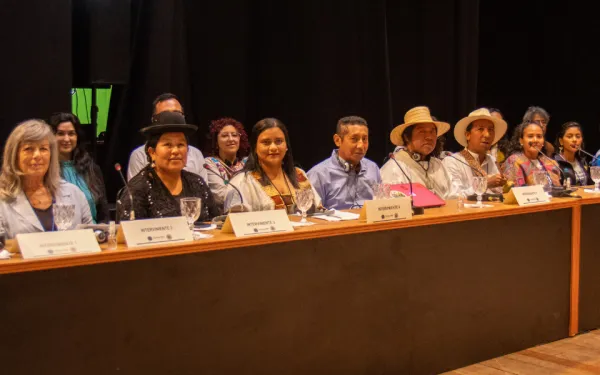
Media Advisory: Inter-American Court Decision on Climate and Human Rights Approaching
Expected Release: Early July 2025The Inter-American Court of Human Rights is expected to release a historic Advisory Opinion in early July, clarifying how states must uphold human rights in the context of the climate crisis.This legal milestone follows public hearings where frontline communities, Indigenous leaders, and civil society organizations shared powerful testimony on the real-world impacts of environmental degradation and government inaction. The Court’s decision will have far-reaching implications for climate policy, state accountability, and the protection of environmental defenders across the Americas.From the beginning of the process, AIDA assumed a proactive role, promoting the involvement of communities affected by the climate crisis in Latin America. We supported a diverse array of amicus briefs and community testimonies before the Court in public hearings and presented our own amicus brief arguing that the right to a “stable and safe climate” should be recognized as part of the universal right to a healthy environment.Spokespeople Available for Media Interviews:Legal Experts & Organizational LeadersMarcella RibeiroSenior Attorney, AIDALanguages: Portuguese (native), Spanish, English Expertise: Community participation, just transition, climate reparationsBased in: Brazil Available for: Interviews and background briefingsLiliana ÁvilaProgram Director, AIDA Languages: Spanish (native), EnglishExpertise: Human rights law, climate litigation, regional legal mechanismsBased in: ColombiaAvailable for: Interviews and background briefingsFrontline Community VoicesWe can coordinate interviews with several key members of frontline communities who testified directly before the Court during the public hearings.These spokepeople bring a vital human and territorial perspective to the legal decision and are available for media conversations in Spanish and local language, with interpretation support as needed. Background Materials:AIDA's amicus brief on the right to a safe and stable climate.Civil society contributions from around Latin America, on the Climate Litigation Platform for Latin America & the Caribbean.Frontline community interviews from the Manaus public hearing.The Manaus Declaration signed by nearly 400 people and organizations from across the continent.AIDA's background ABC on the Advisory Opinion process. Media Contacts:Victor QuintanillaMedia Coordinator, AIDA 📧 [email protected]📱 +52 55 7052 2107Lorena ZáratePositioning Coordinator, AIDA 📧 [email protected]📱 +52 55 7052 2107
Read more
International Ocean Conference ends with High Seas Treaty on verge of entry into force
Nice, France. The 3rd UN Ocean Conference is ending today with a historic step towards ensuring greater High Seas protection. With 19 additional countries depositing their ratifications, the total number of that count toward the High Seas Treaty’s entry into force has now reached 50. Only 10 more are needed to cross the critical 60-country threshold that would trigger the Treaty’s coming into effect.Several countries have already indicated their intent to deposit their ratification instruments at the UN very soon. There is no obligation for them to wait for the UNGA meeting in September, which could mean the Treaty’s entry into force could be activated in the coming weeks."The journey towards a high seas treaty has been nearly as long as the great migrations of whales, sharks and turtles but the wave of new ratifications at the UN Ocean Conference shows we are in the final straight," said Matthew Collis, Senior Director of Policy at the International Fund for Animal Welfare.In addition to the boost in ratifications, the number of countries signing the Treaty also surged. An extra 20 countries added their signatures during the week, bringing the total number to 136. This is an encouraging sign, as widespread ratification will be crucial to ensuring the Treaty’s full effectiveness.Rebecca Hubbard, Director of the High Seas Alliance, emphasized the urgency to maintain momentum: "We must keep our foot on the #RaceForRatification accelerator. The Treaty’s power lies in the number of countries that join, so while we celebrate this incredible progress, we urge all remaining nations to ratify without delay and help drive this Treaty past the first 60 to make it a truly global force for ocean protection."Around 60 heads of state and government attended the meeting reflecting a significant high level attention for the plight of the ocean. The momentum on High Seas Treaty ratification showed what is possible when the world comes together with urgency and purpose.“This is a landmark moment to safeguard the ocean as our greater common good, an opportunity to achieve equity and justice for all nations, and to empower regions, such as Latin America, in defining actions that can shape a fair and sustainable future for all,” said María José González-Bernat, Co-Director of Ecosystems Program of the Interamerican Association for Environmental Defense (AIDA).Attention is now also turning to how the Treaty will be implemented once it enters into force. Several major announcements were made earlier in the week including the re-launch of the High Ambition Coalition for BBNJ and the €10 million that has been made available through the EU’s €40 million Global Ocean Programme to provide technical assistance to developing countries for both ratification and implementation. Private philanthropy also stepped up with the Minderoo Foundation pledging an additional USD6.5 million to support High Seas protection, and funding was confirmed to support a secretariat for the First Movers initiative, which will help advance early proposals for High Seas marine protected areas.Focus is intensifying on building strong bodies and processes under the Treaty to ensure it functions effectively as well as identifying critical High Seas sites for protection once the Treaty is operational through an ongoing Preparatory Commission process at the UN. Efforts to build the case for High Seas MPA proposals submissions under the Treaty were also showcased at the Conference, profiling a number of areas including the Salas y Gomez and Nazca Ridges, the Lord Howe Rise and South Tasman Sea, the West Indian Ocean Sub-Antarctic and the Thermal Dome in the Eastern Pacific.“While the Race to Ratification will soon come to an end, the hard work to fully implement the treaty is just about to begin. Protecting and sustainably managing the High Seas – 50% of the planet – cannot come soon enough. The inclusion of Indigenous and local knowledge systems in the BBNJ Treaty sets new ocean governance foundations for how and for whom this treaty is implemented,” said Ernesto Fernández Monge, International Oceans Director at Oceans North.Notes to editorAs of Friday 13 June at 1400CET,19 additional instruments of ratification were deposited by countries at the UN during the conference and 20 more countries signed the Treaty, signaling their intent to ratify.Additional countries that ratified during UNOC: Albania, Bahamas, Belgium, Croatia, Côte d’Ivoire, Denmark, Fiji, Malta, Mauritania, Vanuatu, Greece, Guinea-Bissau, Indonesia, Jamaica, Jordan, Liberia, Solomon Islands, Tuvalu, VietnamThe European Union has also deposited its instrument of ratification on 28 May 2025. However, as a regional economic integration organization, its ratification does not count toward the total, only ratifications by its individual member states.Additional countries that signed during UNOC: Andorra, Armenia, Burundi, Cambodia, Equatorial Guinea, Guinea, Guinea Bissau, Jordan, Lebanon, Lesotho, Montenegro, Niue, North Macedonia, Papua New Guinea, Peru, Senegal Serbia, South Africa, Saint Kitts and Nevis, YemenThe High Seas Treaty is formally titled the Agreement under the United Nations Convention on the Law of the Sea on the Conservation and Sustainable Use of Marine Biological Diversity of Areas Beyond National Jurisdiction (BBNJ Agreement).The High Seas Alliance (HSA) sometimes uses the term “High Seas Treaty“ as a short-hand for the BBNJ Agreement. HSA acknowledges that the scope of the BBNJ Agreement encompasses all Areas beyond national jurisdiction, including the seafloor and water column. This choice of wording is intended to ease understanding for broad audiences and does not convey a prioritization among the components or principles of the BBNJ Agreement.The official status of signatures and ratifications can be found on the UN website and the High Seas Alliance’s ratification tracker. Note: The number shown on the High Seas Alliance tracker reflects only the ratifications that count toward entry into force and does not include the EU’s ratification and therefore differs from the UN’s total count.The Treaty enters into force 120 days after the 60th instrument of ratification has been deposited at the UN.For more information on the BBNJ High Ambition Coalition.For more information on the EU’s Global Ocean Programme.A series of Preparatory Commission (PrepCom) sessions are happening at the UN to agree on the different institutions and processes that will sit under the Treaty. The first of these sessions happened in April 2025, the second one will be from 18-29 August 2025, and a third one is likely to take place in early 2026. The way these institutions are structured and how they function will shape the Treaty’s long-term effectiveness and determine how quickly global ambition can be translated into tangible results for ocean protection, including the establishment of High Seas marine protected areas.Members quotes-RISE UP: "The wave of High Seas Treaty ratifications at UNOC 3 marks a powerful step toward a thriving ocean future, bringing us closer to protecting our shared ocean heritage. Implementation must be driven not only by science and policy, but also by the leadership and wisdom of Indigenous Peoples and traditional knowledge holders. This is ocean justice in action." – Flora McMorrin, Director, RISE UP.-The Ocean Race: "We at The Ocean Race are thrilled to become a Friend of the High Seas Alliance, recognizing the vital alignment in our joint race for the Ocean. We look forward to collaborating to help the implementation of the High Seas Treaty, working towards the 30x30 target and amplifying critical campaigns for ocean health.” - Richard Brisius, Race Chairman, The Ocean Race.-Accountability.Fish: "A great watershed in the history of sustainable ocean governance. With sufficient support for getting the BBNJ implemented on short notice, Nice has proved a boost for the international commitment with saving biodiversity on the High Seas." - Steven Adolf, Senior Advisor for Accountability.Fish.-AIDA: "The entry into force and the implementation of the BBNJ Agreement is a landmark moment to safeguard the ocean as our greater common good, an opportunity to achieve equity and justice for all nations, and to empower regions, such as Latin America, in defining actions that can shape a fair and sustainable future for all." - María José González-Bernat, Co-Director of Ecosystems Program of AIDA. -Birdlife International: "As a member of the High Seas Alliance, BirdLife International stands ready to provide the science, tools and global-to-local action to build a strong High Seas treaty. Here at UNOC, we now commit to identify the most important areas across 100% of ocean flyways until 2030. This is a key building block for the High Seas treaty to be successful. We call on governments to unite in saving our ocean and to send a strong signal from Nice to the world." - Martin Harper, CEO of BirdLife International.-Global Choices: "Global Choices congratulates the High Seas Alliance on driving increasing ratifications of the BBNJ and we add our voice to the call for urgent full and meaningful implementation of the Agreement. For our work on collaborating to protect the Central Arctic Ocean, an Area Beyond National Jurisdiction, the enhanced Environmental Impact Assessments in the BBNJ agreement will be of particular benefit to enhancing precaution of harm to this most fragile and unique biome." - Inge Relph - Executive Director and Co-Founder, Global Choices.-OceanCare: "Over the past week, we’ve seen an impressive wave of ratifications. While this is a major milestone, it is only the beginning. The real work lies in implementation — and the true test will be whether the Agreement delivers tangible benefits for marine ecosystems. Success will depend on robust institutional arrangements, adequate financing, capacity-building, and genuine cooperation among States and stakeholders. We must seize the momentum generated by the 3rd UN Ocean Conference and act swiftly — the health of our ocean hangs in the balance." - Fabienne McLellan, Managing Director at OceanCare.-The German Ocean Foundation: "The German Ocean Foundation celebrates the growing number of States who have ratified the BBNJ Agreement and urges other States, in particular the German government, to prioritize ratification, so that this treaty can realise its true potential as the catalyst for meaningful and lasting protection of the High Seas that it is designed to be." - Frank Schweikert, Director of the German Ocean Foundation.-Campaign for Nature: "Jumping from 31 to 50 country ratifications within a few days is a remarkable achievement. We now need to capitalise on this momentum and ensure we reach the magic number of 60 before the UN General Assembly meets in September in New York. Every country should aspire to be among this top 60 in the next three months." - Adrian Gahan, Ocean Lead, Campaign for Nature.-MarViva Foundation: "UNOC presented a unique opportunity to strengthen the momentum around the protection of the high seas. We look forward to continuing working along with governments and partner organizations from the High Seas Alliance to ensure the implementation of the BBNJ Treaty and the adequate management and conservation of key sites such as the Thermal Dome." - Katherine Arroyo Arce, Executive Director.-IFAW (The International Fund for Animal Welfare): "The journey towards a high seas treaty has been nearly as long as the great migrations of whales, sharks and turtles but the wave of new ratifications at the UN Ocean Conference shows we are in the final straight. IFAW urges all nations that have not yet done so to ratify the treaty as a matter of urgency so we can at last give meaningful protection to marine life on the high seas." - Matthew Collis, Senior DIrector of Policy.-Sustainable Ocean Alliance: "The BBNJ Treaty is a historic step toward protecting the biodiversity of the high seas, a global commons that no country owns, but all depend on. Contrary to misinformation, this agreement fully respects national sovereignty: it only applies to the High Seas that is generally beyond 200 nautical miles, where no country has exclusive rights. By ratifying the BBNJ Treaty, countries are not giving up power, they are stepping up to protect life beyond borders and ensure that international waters are governed by cooperation, science, and fairness." - Daniel Cáceres Bartra, SOA Hispanoamérica.-Greenpeace International: "Ratification of the High Seas Treaty is now within touching distance. The progress made on Monday reminded us of the multilateral cooperation we saw when the Treaty text was agreed by consensus in 2023. This momentum now must be maintained. We need to cross the threshold of sixty ratifications as soon as possible, so the Treaty can enter into force in 2025. Following this, we must see governments take marine protected area proposals to the first Ocean Conference of Parties in 2026. One billion people rely on the oceans, and if we can protect 30% of the oceans using this Treaty, they will continue to provide for us." - Megan Randles, Greenpeace International’s Head of Delegation for the Conference.-WILDTRUST: "The South African based NGO WILDTRUST – WILDOCEANS programme team have been blown away by ocean conservation commitments made by both the South African government and the Union of Comoros at UNOC 2025. South Africa’s Minister of Forestry, Fisheries and the Environment Dr Dion George, signed the BBNJ Agreement, also known as the High Seas Treaty, on the 9th of June. The Minister touched on how signing the Agreement builds on the countries record of active multilateral engagement and positions them as a bridge-builder between global ambition and local action for the oceans.On Tuesday the 10th of June the Ministry of Comoros confirmed the country’s readiness to take swift action to support global marine conservation goals. They signed and committed to move to ratify the High Seas Treaty, as well as pledged to protect 30% of their ocean by designating approximately 50 000km2 in Marine Protected Areas by 2030.Ecological sustainability is only possible when paired with socio-economic prosperity, especially in vulnerable coastal communities, where lasting marine conservation depends on both nature and people thriving together," commented Strategic Ocean Lead at the WILDTRUST. "This is why we are so pleased about these bold steps to protect the western Indian Ocean at large."-Oceans North: "While the Race to Ratification will soon come to an end, the hard work to fully implement the treaty is just about to begin. Protecting and sustainably managing the high seas – 50% of the planet – cannot come soon enough. The inclusion of Indigenous and local knowledge systems in the BBNJ Treaty sets new ocean governance foundations for how and for whom this treaty is implemented." - Ernesto Fernández Monge, International Oceans Director, Oceans North.-The Ocean Project: "We are highly encouraged with the progress made toward ratification and urge all nations to "seas the day" and swiftly ratify the High Seas Treaty. Ratification provides an historic opportunity for nations of the world to come together and finally safeguard this global commons. Critically important, ratification will provide the ability to protect at least 30% of the ocean, which nations of the world committed to achieving by 2030. Doing so will help both current and future generations because no matter where we live on our blue planet, we all need a healthy ocean to survive and thrive." - Bill Mott, Executive Director, The Ocean Project | World Ocean Day.-Conservation International and the Coral Reefs of the High Seas Coalition: "The wave of international commitments to the High Seas Treaty signals growing global recognition that we must urgently conserve marine biodiversity in our shared ocean. This landmark agreement lays the foundation for creating marine protected areas beyond national jurisdiction - safeguarding the rich biodiversity and deep cultural heritage of the high seas for future generations." - Haydée Rodriguez-Romero, Director of the Coral Reefs of the High Seas Coalition, Conservation International.-The Pew Charitable Trusts: “"This remarkable progress demonstrates the global community’s commitment to swiftly implement the BBNJ Agreement and secure benefits for marine life and people worldwide. This includes a global ambition to establish the first generation of high seas marine protected areas, which is critical for meeting the world’s 30 by 30 conservation goal within the next five years." – Nichola Clark, senior officer on The Pew Charitable Trusts’ ocean governance team.-Iceland Nature Conservation Association: "We very much welcome Iceland’s commitment to ratifying the BBNJ treaty during the autumn session of the Icelandic Parliament. However, given Iceland’s previous commitments, Iceland must be among the first 60 states to ratify the BBNJ." - Árni Finnsson, Iceland Nature Conservation Association.-iSea: "At iSea, we are proud to have supported the High Seas Alliance's Race for Ratification, and we welcome Greece’s and Cyprus's ratification of the BBNJ Agreement as a crucial step toward ocean protection. With only a few national ratifications remaining after the momentum of UNOC3, the High Seas Treaty is closer than ever to entering into force. As an NGO dedicated to the conservation of the marine environment, iSea remains committed to actively supporting the next steps for the Treaty’s effective implementation worldwide."-Global Fishing Watch: "UNOC has given us a glimmer of hope that the challenges facing our ocean are being seen and will be tackled. Transparency at all levels has rightly emerged as crucial in this work, because we can’t protect what we can’t see. As we edge closer to the High Seas Treaty coming into force, governments need to double down - using both transparency and new technologies - to safeguard the ocean and its riches for the benefit of all those who rely on it." - Tony Long, chief executive officer of Global Fishing Watch.-The Nature Conservancy: "Achieving meaningful change on the high seas requires a whole-ocean approach grounded in global cooperation and local leadership. The momentum behind the BBNJ Treaty shows that this is possible. Now is the moment to double down. As we approach the 60 ratifications needed to bring it into force, we move closer to protecting the ocean systems that sustain life— safeguarding food security, livelihoods, and climate resilience for communities around the world." – Dr. Elizabeth McLeod, Global Ocean Director, The Nature Conservancy.-Iceland Nature Conservation Association: "We very much welcome Iceland’s commitment to ratifying the BBNJ treaty during the autumn session of the Icelandic Parliament. However, given Iceland’s previous commitments, Iceland must be among the first 60 states to ratify the BBNJ." - Árni Finnsson, Chair of Board, Náttúruverndarsamtök Íslands / Iceland Nature Conservation Association.-EarthEcho: "On behalf of our global community of young people at EarthEcho, I am extremely excited by the multilateral progress made here at Nice in the Race for Ratification. Young people are already strongly mobilized in laying the groundwork for BBNJ Treaty implementation, and we’re ready and eager to hit the ground running once it enters into force. To our world leaders, the ball is in your court!" - Taylor Cargill, EarthEcho International Youth Leadership Council member.
Read more